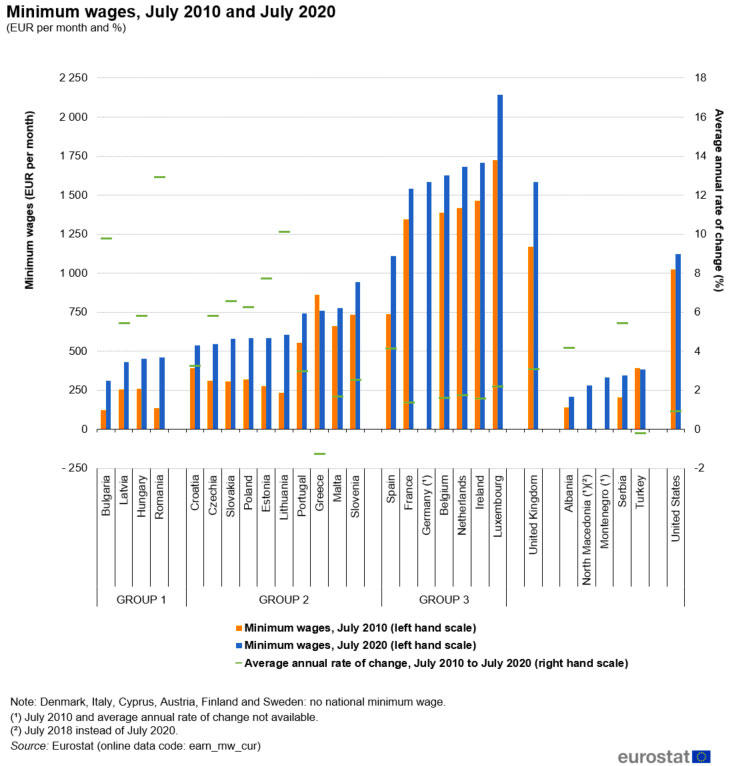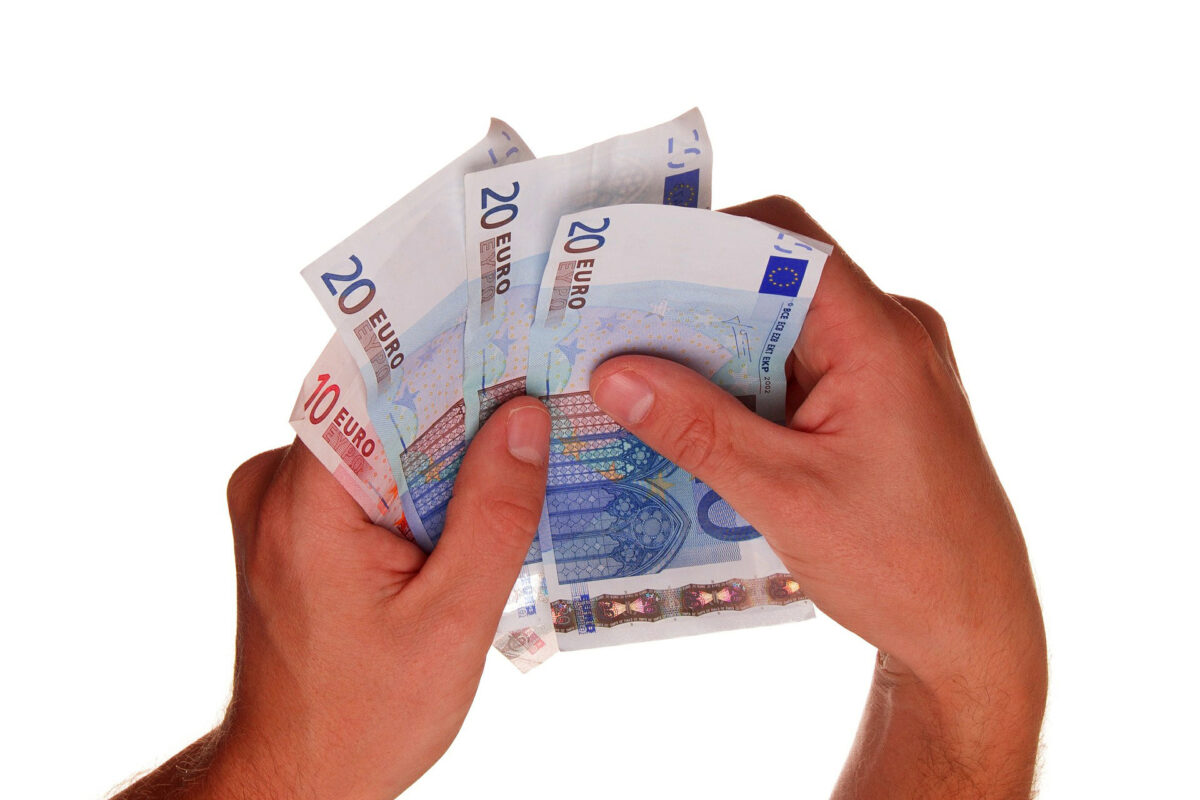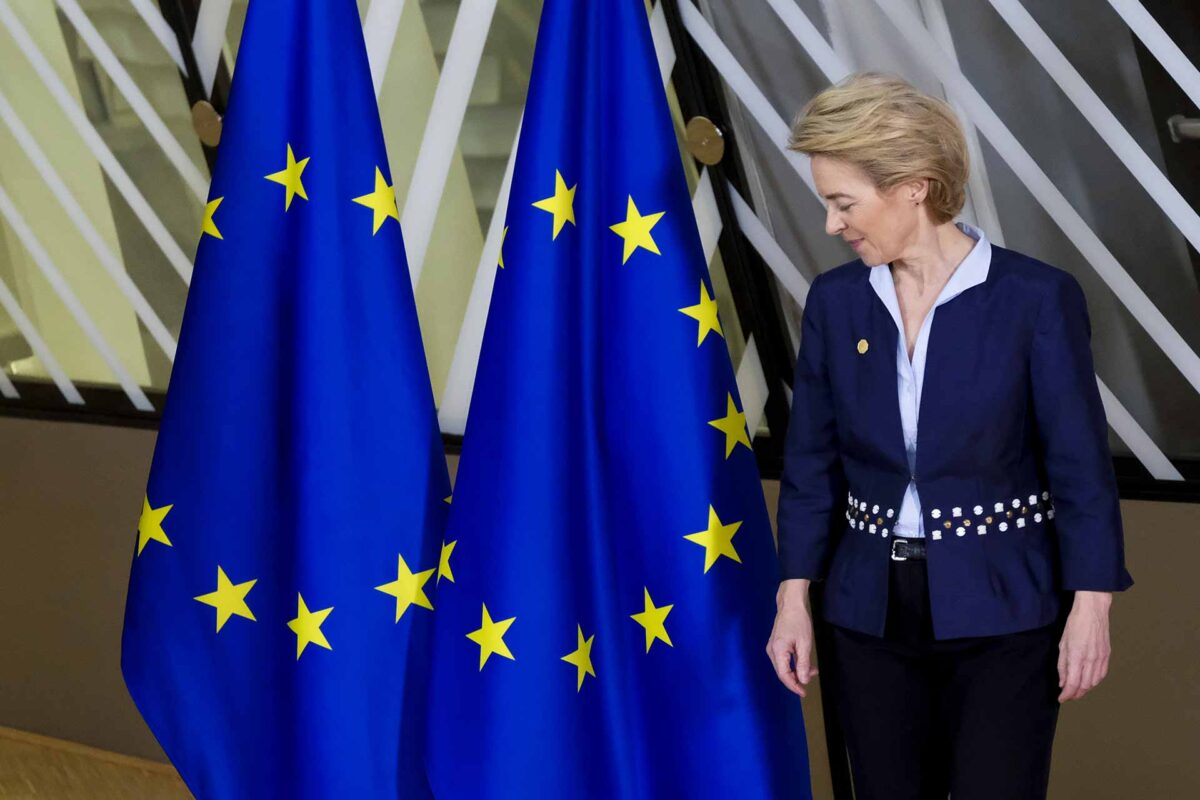EU Commissioner for Jobs and Social Rights made it clear on Wednesday that the same minimum wage for all Europeans is not possible. He noted that if Bulgaria, the country with the lowest wages in the EU, introduced the same wages as its home country Luxembourg, there would be “no Bulgarian economy” the next day.
The minimum wage in Bulgaria is €312 and in Luxembourg €2,071
Minimum wages exist in all EU Member States. 21 countries have statutory minimum wages. 6 Member States (Denmark, Italy, Cyprus, Austria, Finland and Sweden) minimum wage protection is provided exclusively by collective agreements. Yet, in the majority of Member States, workers are affected by insufficient adequacy and/or gaps in the coverage of minimum wage protection. In light of this, the proposed Directive creates a framework to improve the adequacy of minimum wages. It provides also the minimum wage protection for all European workers.
The Commission’s proposal fully respects the subsidiary principle. It sets a framework for minimum standards, respecting and reflecting Member States’ competences and social partners’ autonomy and contractual freedom in the field of wages. It does not oblige Member States to introduce statutory minimum wages, nor does it set a common minimum wage level.
Countries with high collective bargaining coverage tend to have a lower share of low-wage workers, lower wage inequality and higher minimum wages. Therefore, the Commission proposal aims at promoting collective bargaining on wages in all Member States.
EU Minimum wage – Mind the Gap
Minimum wages, July 2010 and July 2020 (EUR per month and %)

Countries with statutory minimum wages should put in place the conditions for minimum wages at adequate levels. These conditions include clear and stable criteria for minimum wage setting. Also it gives indicative reference values to guide the assessment of adequacy and regular and timely updates of minimum wages. These Member States have also to ensure the proportionate and justified use of minimum wage variations and deductions. Members have to work on the effective involvement of social partners in statutory minimum wage setting, monitoring and updating.
EUROSTAT: monitoring of the minimum wage
Finally, the proposal provides for improved enforcement and monitoring of the minimum wage protection established in each country. Compliance and effective enforcement is essential for EU safe workers to benefit from actual access to minimum wage protection, and for businesses against unfair competition. The proposed Directive introduces annual reporting by Member States on its minimum wage protection data to the Commission.
A framework for minimum wages in full respect of national competences and traditions
President von der Leyen promised to present a legal instrument to ensure that the workers in our Union have a fair minimum wage at the start of her mandate. EU Chief repeated her pledge in her first State of the Union address on 16 September 2020.
The right to adequate minimum wages is in Principle 6 of the European Pillar of Social Rights. This right was jointly proclaimed by the European Parliament, the Council on behalf of all Member States, and the European Commission in Gothenburg in November 2017.
Is an economic crisis the right moment to act on minimum wages?
In recent decades, low wages have not kept up with other wages. This has contributed to increasing in-work poverty and limited the capacity of low-wage earners to cope with economic and social distress. The fact the current crisis has particularly hit sectors with a higher share of low-wage workers. Retail and tourism have many low-wage workers. Crisis is likely to have a stronger impact on vulnerable workers. Proposal is today even more important to protect low-wage earners. Ensuring a decent living for workers is not only important during the crisis. Is is also essential for a sustainable and inclusive economic recovery from the crisis. Adequate minimum wage protection has the potential to boost productivity and competitiveness. It may also contribute to sustaining domestic demand, potentially further increasing the revenue of companies and offsetting higher labour costs.
Today’s proposal for adequate minimum wages is an important signal that also in crisis times, the dignity of work must be sacred.
President of the European Commission

The Commission proposed an EU Directive to ensure protection for workers in the Union by adequate minimum wages allowing for a decent living wherever they work. When set at adequate levels, minimum wages do not only have a positive social impact but also bring wider economic benefits as they reduce wage inequality, help sustain domestic demand and strengthen incentives to work. Adequate minimum wages can also help reduce the gender pay gap, since more women than men earn a minimum wage. The proposal also helps protect employers that pay decent wages to workers by ensuring fair competition.
Low-wage workers
The current crisis has particularly hit sectors with a higher share of low-wage workers. These sectors are cleaning, retail, health and long-term care and residential care. Ensuring a decent living for workers and reducing in-work poverty is not only important during the crisis. It is also essential for a sustainable and inclusive economic recovery.

State of the Union 2020
President Ursula von der Leyen said: “We have seen that for too many people, work no longer pays. Workers should have access to adequate minimum wages and a decent standard of living. What we propose today is a framework for minimum wages, in full respect of national traditions and the freedom of social partners. Improving working and living conditions will not only protect our workers, but also employers that pay decent wages, and create the basis for a fair, inclusive and resilient recovery.”
It is important to ensure that also low wage workers benefit from the economic recovery.
Valdis Dombrovskis, Executive Vice-President
Executive Vice-President for an Economy that Works for People, Valdis Dombrovskis, said: “With this proposal we want to make sure that workers in the EU earn a decent living wherever they work. Social partners have a crucial role to play in negotiating wages nationally and locally. We support their freedom to negotiate wages autonomously, and where this is not possible, we give a framework to guide Member states in setting minimum wages.”
Almost 10% of workers in the EU are living in poverty: this has to change.
Nicolas Schmit, Commissioner for Jobs and Social Rights
Nicolas Schmit, Commissioner for Jobs and Social Rights, said: “People who have a job should not be struggling to make ends meet. Minimum wages have to play catch up with other wages which have seen growth in recent decades, leaving minimum wages lagging behind. Collective bargaining should be the gold standard across all Member States. Ensuring adequate minimum wages is written in black and white in Principle 6 of the European Pillar of Social Rights. All Member States have endorsed, so we are counting on their continued commitment.”
Commission proposal for an EU Directive on adequate minimum wages in the EU
The Commission’s proposal will now go to the European Parliament and the Council for approval. Once adopted, Member States will have two years have to transpose the Directive into national law.
Is the EU harmonising the level of minimum wage across the EU?
The proposal does not seek to harmonise the level of minimum wages across the EU, nor to establish a uniform mechanism for setting minimum wages in the Member States. Minimum wage protection will continue to be provided through collective agreements. Also through legal provisions, according to national traditions and in full respect of national competences and social partners’ autonomy. Member States that already have more favourable provisions than those put forward in the proposal will not have to change their minimum wage setting systems. Member States may also decide to go beyond the minimum standards set out in the proposed Directive.














